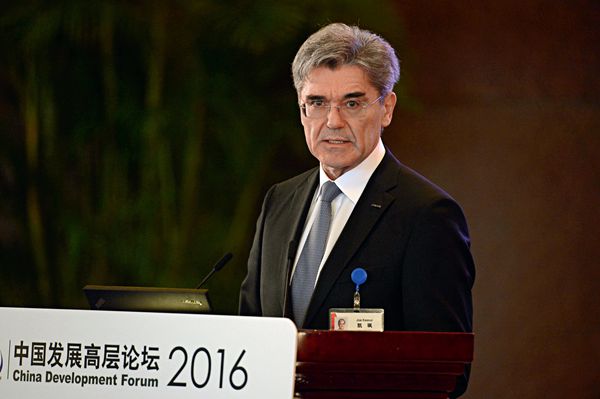Foreign Companies Opting Out?
China Today, January 23, 2017 Adjust font size:
MASS withdrawal of foreign direct investment from China has been a frequent topic of discussion in western media since 2015. China’s investment environment has been beset with claims that enterprises are retrieving their capital, or transferring their production facilities to Southeast Asia and beyond.
However, a survey by the Delegations of German Industry and Commerce shows that more than 90 percent of German companies hold a neutral or optimistic attitude toward China’s 13th Five-Year Plan, so refuting such reports. The survey also implies that around the same number of companies have no plans to leave China in the coming year.
Witness to China’s Development
Located on Jiuxianqiao East Road in Beijing’s Chaoyang District, the Siemens Factory Automation Engineering Ltd. (SFAE), established in 1993, was the enterprise through which the German company Siemens invested in China.
Wangjing, where the company is situated, is a residential cluster in Northeast Beijing with a permanent population of around 300,000. Accommodating a convergence of telecommunication and Internet companies, the area is site of the headquarters of such high-tech enterprises as ABB, Motorola, Sony Ericsson, Panasonic, and Microsoft. The “Mobile Valley,” planned by the Chinese government, is to be sited in the northern reaches of the Wangjing Science & Technology Entrepreneurship Park.

Joe Kaeser, president and chief executive officer of Siemens AG, gives a speech at China Development Forum 2016 in Beijing last March.
“There was vast farmland here when the company was first built, but as you see, there are now skyscrapers everywhere,” president of Siemens China Lothar Herrmann said. “We have now become a local enterprise in China.”
Siemens AG, founded in 1847, is a global leader in electronics and electrical engineering. Siemens’ history in China began in 1872. For more than 140 years, Siemens has been one of the country’s largest foreign-invested companies, with around 32,000 employees and 70 affiliated companies. In the fiscal year 2015 (October 2014 - September 2015), Siemens achieved solid growth, and generated in the country revenues of €6.94 billion.
During the 140-year history of the partnership between Siemens and China, the German automation company has provided power generators to Yunnan’s Shilongba hydro power plant, so signaling development of China’s renewable energy, and built China’s first electric tram. Siemens also supplied power-driven machinery to the century-old Tsingtao Brewery, and installed China’s first X-ray machine.
Siemens has also witnessed the tremendous changes that have taken place since China’s reform and opening-up policy came into effect. It has also observed the country’s constantly improving business environment, normalized commercial rules, and strengthened business governance.
Herrmann commented that in recent years the Chinese government has set great store on building a well-developed “soft environment” to attract more foreign capital, one wherein both domestic and foreign enterprises enjoy an open, transparent, and predictable market. Along with China’s entry into the “new normal” economy, comprehensive economic cooperation between China and the world has also brought unprecedented opportunities for foreign companies. “China’s potential market is extremely attractive to foreign businessmen. We are confident of abundant opportunities in the near future,” Herrmann said.